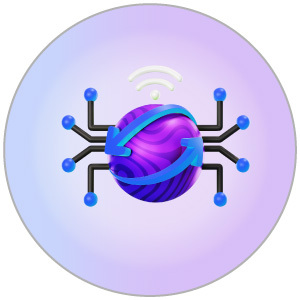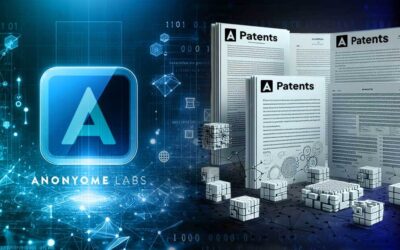More than 62 per cent of US companies plan to incorporate a decentralized identity (DI) solution into their operations, with 74 per cent likely to do so within a year, according to a recent survey.
The DI (or self-sovereign identity) industry is predicted to explode in value from USD 0.65 billion in 2022 to USD 102.0 billion by 2030, and Forbes recently listed 50 smart companies investing in blockchain (beyond crypto) to make their businesses operate better, faster or cheaper. Blockchain is the “anchor of trust” for DI.
The leading DI solution anchored in blockchain is a fully user-controlled digital identity wallet, in which the user accepts, securely stores, and shares digital identity and other verified documents to prove their identity or credentials with services.
Watch this short video about the new European digital identity wallet as an example.
Digital wallets and other DI applications can deliver immediate business value from:
- new revenue opportunities (e.g. a customer wallet offering)
- cost saving opportunities (e.g. replacing inefficient processes)
- solving common business problems (e.g. easing the regulatory compliance burden).
Read our whitepaper, Realizing the Business Value of Decentralized Identity.
DI has the potential to benefit all industries and sectors. Here are 17 industries that can leverage Decentralized identity technology right now:
1. Banking and finance:
DI has massive application in this industry, including for customer-controlled onboarding, consent and data management; streamlined AML and KYC processes; secure and tamper-proof authentication, including for cross-border transactions; and fraud prevention. The itsme app in Europe, built by Belgium Mobile ID, a large consortium of Belgium’s leading banks and mobile network operators, is a great example.


2. Healthcare:
COVID-19 accelerated the already real need for secure and private interoperable e-health. Scope for DI applications includes in secure patient identity management; secure and standardized health information exchange, data privacy and consent management; better clinical trial recruitment and data integrity and transparency; simpler medical credentialing and licensing; and more efficient health insurance processes, including claims processing. The US, UK, and other jurisdictions are well ahead this work.
3. Farming and mining:
Regulated industries, such as farming and mining, require members to comply with established regulations and to perform compliance reporting to government agencies. These two industries generate significant greenhouse gas, and must therefore regularly submit greenhouse gas emission reports to government agencies. Cost of compliance to regulation can be significant, especially when dealing with multiple government agencies. DI-based verifiable credentials are a very promising solution for compliance regulation, and are already used in a number of regulatory environments including Trust Alliance New Zealand and the Energy Mines and Digital Trust project in British Columbia.


4. Government and public administration:
Governments are one of the pioneers of secure and portable digital identities for identity verification and KYC processes for functions such as issuing official documents, accessing public services, or conducting financial transactions. DI is also applicable for border control and travel processes using digital passports and travel credentials; managing public health initiatives and crises including vaccinations; more efficient financial inclusion and aid distribution; and secure and interoperable data sharing. This article lists many examples of government digital ID at various stages of implementation, including the United Nations (UN) and World Bank ID4D initiative which aims to provide everyone on the planet with a legal identity by 2030.
5. Education:
Another of the most common early use cases for DI is education. DI offers a secure and tamper-proof way to issue and manage digital credentials and certificates and to authenticate identities for online learning in the education sector. Institutions can issue diplomas, degrees, or certificates as verifiable credentials, which students and alumni can easily share with employers, other educational institutions, or credential verification services. DI also simplifies the hiring process, promotes trust, boosts cross-institutional research, reduces administrative burdens, simplifies consent management, and limits fraud risk. Read this deep dive on developments and benefits to date.


6. Travel and hospitality:
This is a booming use case thanks partly to the COVID-19 pandemic, and we’re already seeing applications of DI to streamline traveller verification processes, such as airport security checks and immigration procedures as well as hotel check-ins, to bolster security, free up resources and ease congestion. Travelers store data and biometrics as a digital travel credential on a device or in the cloud. The idea is to create a single sign-on experience for travellers for a seamless journey across all different aspects of travel. There are already around 1.2 billion ePassports in use worldwide and smart borders are progressing rapidly. And check out the Aruba Happy One Pass (Aruba HOP) app which allows an air traveler to create a digital travel credential (DTC) from their passport, and is a collab between Indicio, SITA and Aruba.
7. Identity and access management (IAM):
This is a foundational area for DI and you can read our whitepaper, Innovating Identity and Access Management with Decentralized Identity. DI transforms IAM systems by providing people with their digital IDs and credentials, to improve authentication processes, and simplify user access across different platforms and services.


8. Supply chain and logistics:
DI can deliver reliable product authentication, verification, transparency and traceability throughout the supply chain; streamline the process of verifying supplier identities and credentials; enable secure data sharing and collaboration; limit counterfeiting; streamline customs and border control processes to reduce paperwork and fraud and speed up customs clearance procedures; aid compliance; and support financing, insurance, and recall processes.
9. Non-profit and humanitarian organizations:
DI can help securely identify beneficiaries, streamline aid distribution processes, and enhance transparency and accountability in humanitarian initiatives. The Identity for Good initiative is a great example.


10. IoT and connected devices:
In a whitepaper from Hyperledger Indy, as leader in the DI space, it says that “… by 2025, connected devices will generate more than 73.1 zettabytes of data every year—where each zettabyte is a billion terabytes. How can telecom service providers secure all these devices, manage the integrity of each device, and provide the transparency that consumers and enterprises want about how their data is used?” It proposes using DI to create a trusted platform for a telecom ecosystem that can support IoT devices throughout their entire lifecycle and guarantee a flawless customer experience.
11. Notary and legal services:
DI allows a more secure and efficient method for verifying identities, reducing the risk of identity fraud; streamlines document verification and timestamping based on digital fingerprinting or document hashes; enables use of digital signatures; and facilitates secure data sharing and cross-border services.


12. Social media and online platforms:
The greatest use case for DI here is significantly better user control and privacy over personal information. With verifiable credentials, users can authenticate their identity and gain trust in the network, which leads to greater authenticity of user profiles, less misinformation, and better user interactions.
13. E-commerce and retail:
This sector can drastically improve customer trust and experience, by allowing seamless account creation across e-commerce platforms. It can also secure payments, reduce fraud, increase transparency of supply chains, and build secure peer-to-peer marketplaces.


14. Insurance:
DI can streamline KYC processes; improve accuracy of risk assessment and underwriting; increase the efficiency and transparency of claims processing; give customers greater control over their personal data and consent management; enable use of parametric insurance and smart contracts; and facilitate risk pooling and reinsurance processes.
15. Energy and utilities:
DI can enable secure and verifiable identities for energy consumers, facilitate peer-to-peer energy trading, and enhance energy grid management.


16. Real estate:
In real estate and property, DI can improve property ownership verification and title management; expedite the tenancy agreement process; and enable smart contracts and escrow services to automate the execution of agreements, improve compliance with predefined conditions before funds or property are released, and limit reliance on intermediaries.
17. Gaming and virtual worlds:
Blockchain is revolutionizing gaming, with more secure transactions, identity verification, and in-game economies some of the benefits.

The bottom line for any industry is that DI gives greater privacy, security, transparency, efficiency, and user experience. The game changer is that customers control their personal information, which drastically improves their privacy and security, reduces fraud and other risks, and builds brand loyalty and trust.
DI standards are rapidly evolving to drive the interoperability of DI solutions across the internet, and Anonyome Labs is proud to contribute to the standards.
Want to jump onboard? Talk to us about using our Sudo Platform APIs for powering next-generation customer apps with DI, privacy, and cyber safety capabilities.
Our blogs cover DI from many angles. You might like:
- Can Decentralized Identity Give You Greater Control of Your Online Identity?
- Simple Definitions for Complex Terms in Decentralized Identity
- How You Can Use Sudo Platform Digital Identities and Decentralized Identity Capabilities to Rapidly Deliver Customer Privacy Solutions
- What our Chief Architect said about Decentralized Identity to Delay Happy Hour
- 7 Benefits to Enterprises from Proactively Adopting Decentralized Identity
- Our whitepapers



